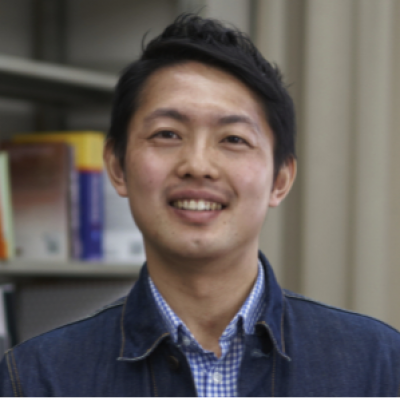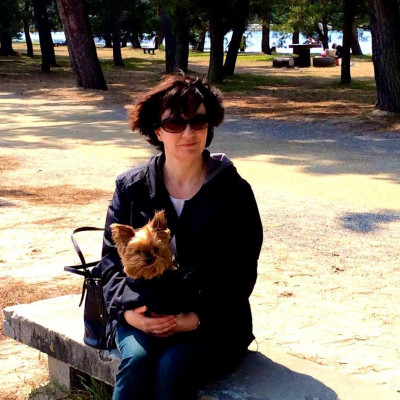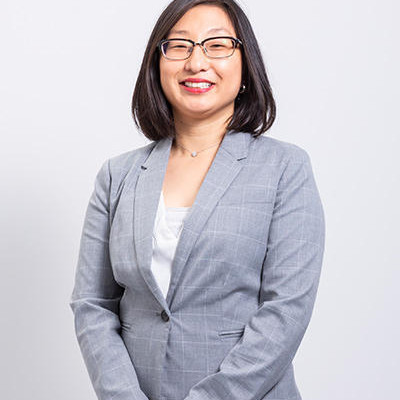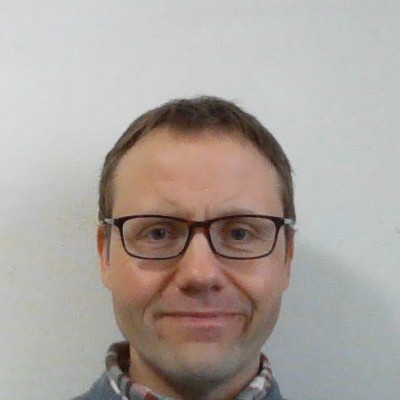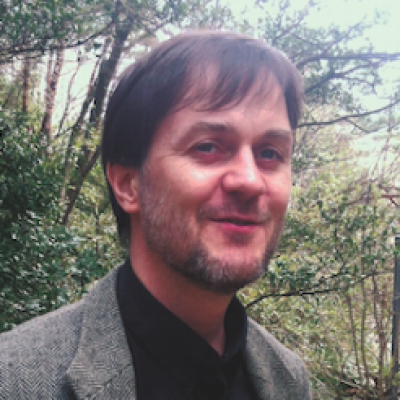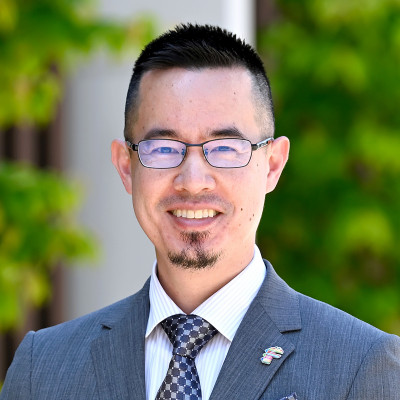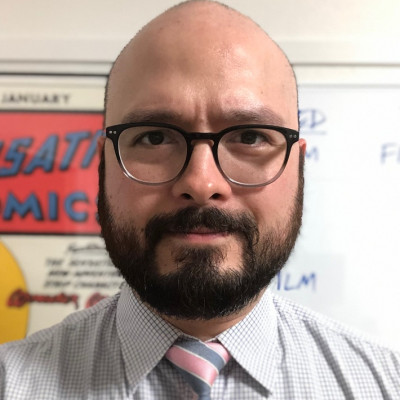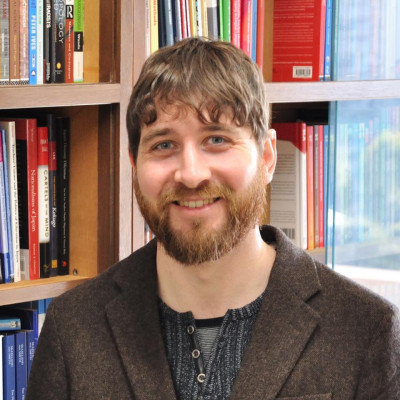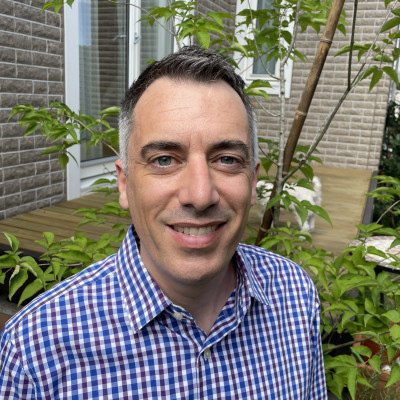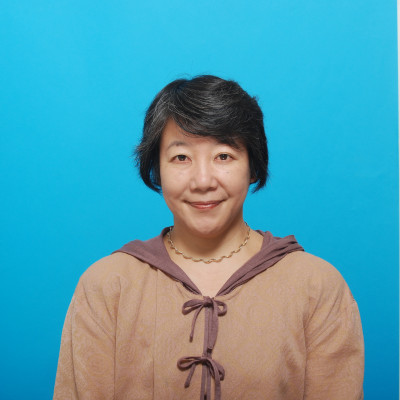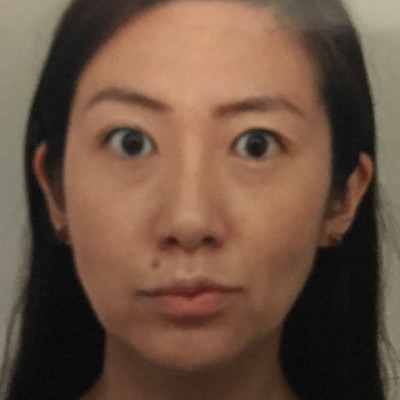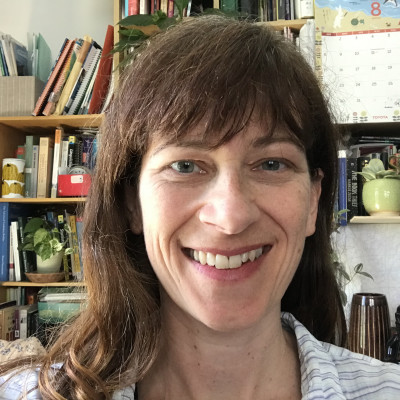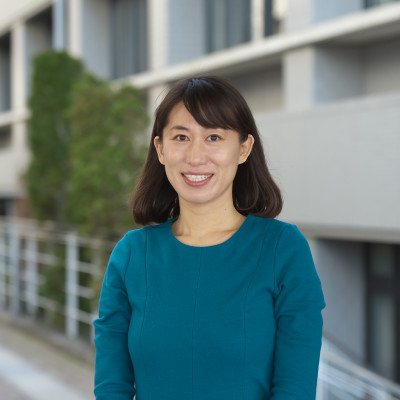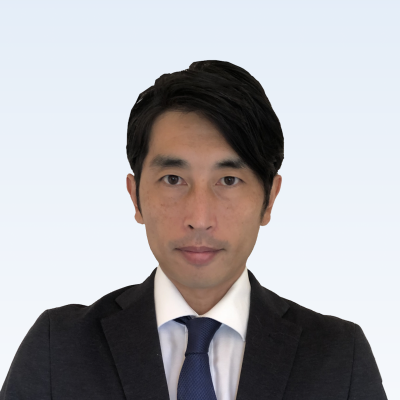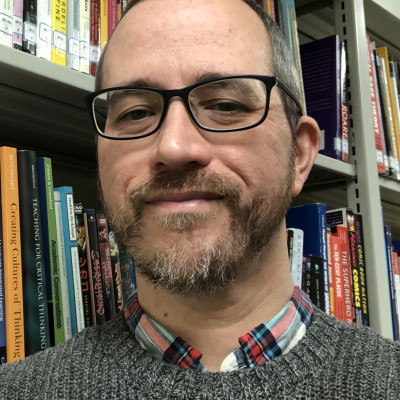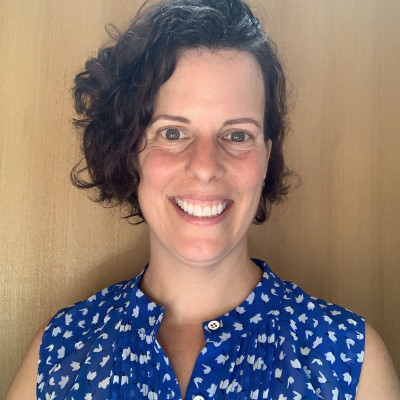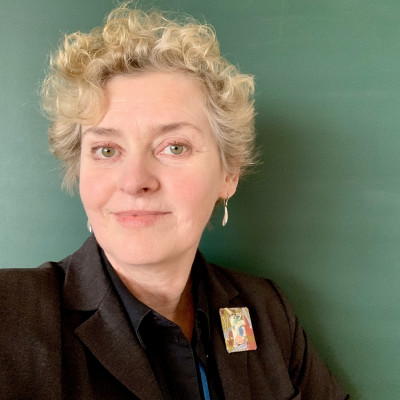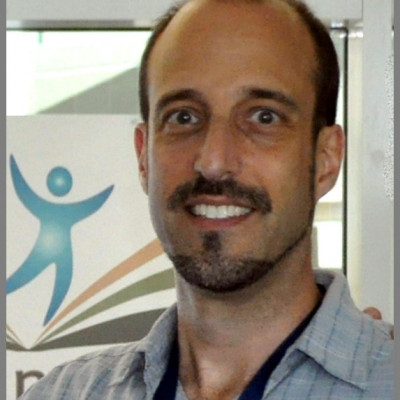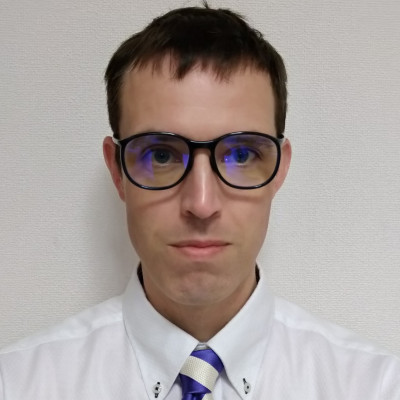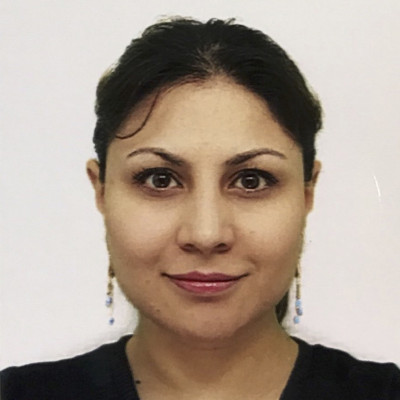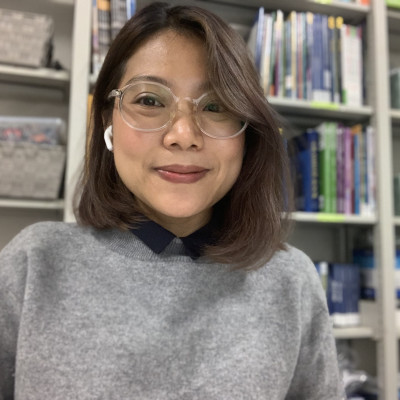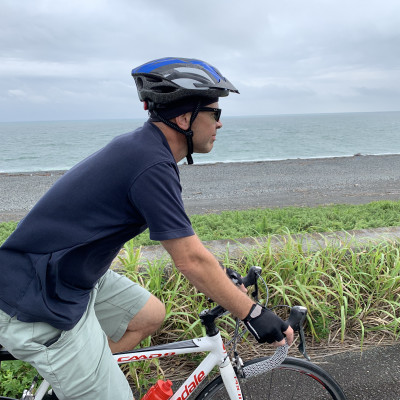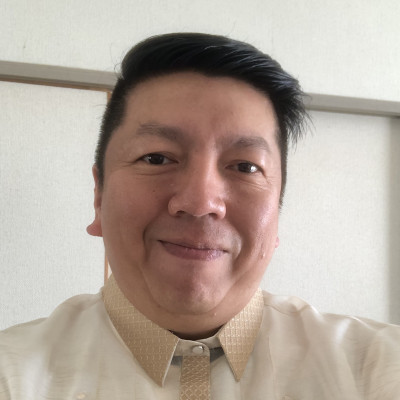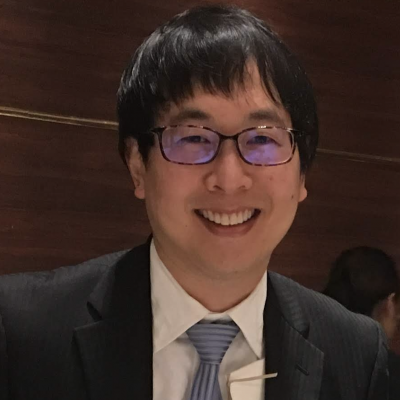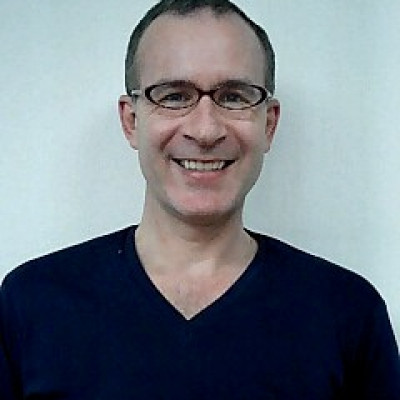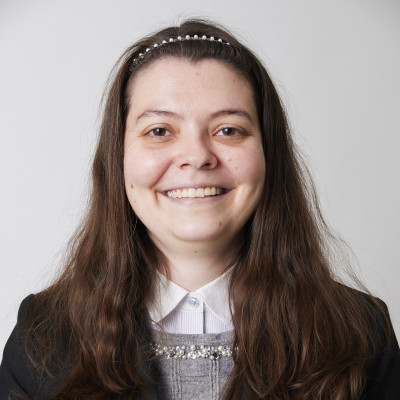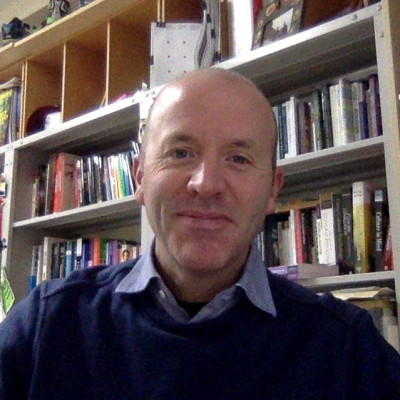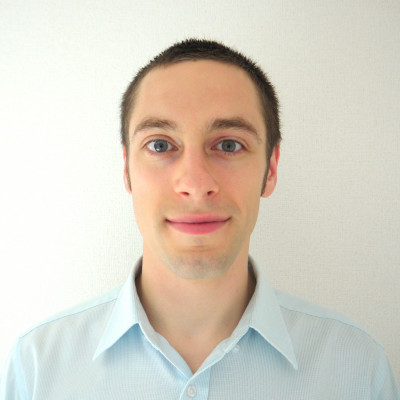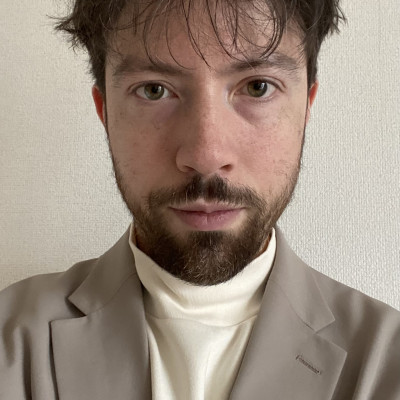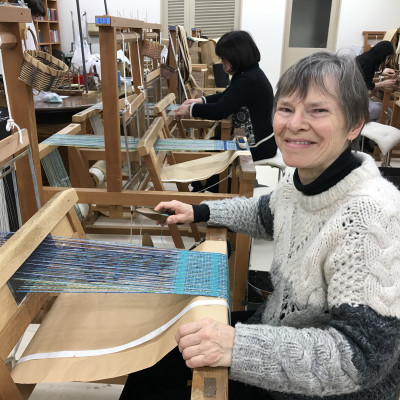Sessions / General
Cancelled EFL teachers’ perspectives on the interface between autonomy and agency #2978
While learner autonomy and student agency are widely known concepts within language education (Benson & Cooker, 2013), these constructs have largely been treated as separate and distinct, possibly competing, or mutually exclusive. The increased use of online learning during the global pandemic has again raised the issue of learner autonomy and the spaces within which learning takes place (Benson, 2021). This makes the examination of the interface between learner autonomy and student agency even more important to investigate as teachers and students return to face-to-face classes. Using qualitative interview data with two EFL teachers from two private Japanese high schools, the presenter will examine how these teachers conceptualise the interface between learner autonomy and student agency within their own lived experiences of teaching in Japan. The insights from this research suggest that there is a need to consider the impact of the social space on whether students display autonomy or not. Such a focus includes classroom management by teachers, teacher development, as well as institutional barriers and cultural practices that encourage or discourage students from taking more responsibility for their learning. Finally, this research also lets us probe whether learner autonomy and student agency are really completely distinct concepts.
PanSIG Meeting #1921
Final committee meeting to prepare for PanSIG2022
Online lounge #3293
Meet online participants and some of the conference team.
Using lending history to recommend books for extensive reading #2849
When purchasing new graded readers for a university library, as well as making a varied collection, it is important to consider whether the books will be “popular” or “highly rated” by the students who use the library. The factors that make a book popular may be different for books that are intended to improve English skills. Therefore, using the lending history of books held by a university library, we analyze the factors that make a book popular and derive the criteria for predicting popularity in graded readers. By using these criteria, we can predict the popularity of the books we plan to purchase and so purchase the graded readers most likely to meet the needs of the library’s users. In this study, we use data extracted from an online system which stores the lending history and evaluations of graded readers in a university library, to identify the most popular graded readers and the factors related to their popularity. On the basis of these factors, we estimate an order of priority by performing statistical analysis in order to determine whether the books which the library is planning to purchase will meet the specific needs of the readers who use the library.
Difficulty estimation method for extensive reading of general english books #2848
Extensive reading (ER) entails starting with simple books (graded readers) and gradually expanding the range of reading to include progressively more difficult books. In Japan, ER programmes often make use of “Yomiyasusa Level” (YL), which indicates a book’s difficulty performed by the subjectivity of Japanese people who have already done a lot of ER. One of the principles of ER is that learners should use the YL scale to choose books at an appropriate reading level. Even after learners have progressed from graded readers, they will still benefit from being able to choose books on the basis of YL, but relatively few non-graded readers appear in YL databases. The goal of this research is to estimate the YL of general English books to which a YL has not yet been assigned. This will also be useful for determining the YL scores of new graded readers and for checking the validity of previously assigned YL. First, we examine the parameters which contribute to YL using a corpus tool called Coh-Metrix, which quantitatively evaluates the linguistic characteristics of a text. Then, we perform a regression analysis using these parameters and estimate the YL of general English books.
Automatic question generation for an extensive reading placement test #2850
When practiced correctly, Extensive Reading (ER) should enable learners to become more proficient users of a foreign language. The method is only effective, however, if learners read books of an appropriate level, i.e. books which they can enjoy reading without needing to consult a dictionary. Therefore, the Extensive Reading Foundation Placement Test (ERFPT) was developed to measure the reading level of learners. The test employs comprehension questions which have been created by teachers who have volunteered their time to help develop the test. More texts and test items will improve the test; therefore, we propose a system that automatically generates questions and so reduces the burden on those making the test items. The question generation method is based on the way that the test item maker actually creates questions for the ERFPT, in other words through a process of ‘abstraction’. We use a summary created by PEGASAS, which is a transformer model for abstractive text summarization. This presentation will investigate the suitability of this method for generating questions for ERFPT. If successful this method may be used for creation of a variety of comprehension tests beyond ER.
Online Lounge #3289
Meet online participants and prepare for the day.
Opening Ceremony #3290
Welcome to PanSIG2022!
Corpus Linguistics: What is it and what can it do for you? #2968
Corpus Linguistics (CL) is a data driven methodology where frequency data is an important source for teachers and learners (Friginal, 2018). CL is mainly used at the level of institutions, publishers, editors, materials writers, researchers, and other specialists. (Bolton, 2010). This is a process and language that is very specialized and dense and is not intended for the language learner / average teacher. It takes a lot of investment in order to come to understand CL, like any technical subject. CL does have a lot of upsides such as making materials more authentic and developing learner autonomy. This presentation will cover some practical examples of what can be done in terms of pedagogical application such as tasks done by students or simply techniques to improve your own teaching. Having different tools and a variety of them can help teachers who have no experience get a good start using CL in the classroom.
The Unheard Voice in Materials Development #2971
The learning materials or textbook used in the classroom is a core component of language learning in the EFL industry. However, the material is often designed by teams of materials writers, located far away and completely faceless from the students' perspective. Additionally, multiple researchers in the field (McGrath, 2013; Tomlinson and Masuhara, 2018) have identified one pitfall of materials development and textbooks as the lack of a meaningful feedback loop from learners, what we refer to as ‘the unheard voice.’ This presentation will report on a survey carried out by the presenters to give students a voice by listening to their attitudes towards the materials used in class. Some of the main areas covered include the level of interest or enjoyment towards the current textbooks/materials used in class, problems that they perceive in current materials, the type of materials that students would like to use, the preferred modality of learning material delivery (such as traditional pen and paper, group work, video, and online quizzes). In addition, the survey went deeper by encouraging students to think more critically by asking them to consider designing their own materials and the content and format of these materials.
Exploring the benefits and challenges of using humor in online teaching #2735
Humor can be a vital component of the language teacher’s repertoire, especially considering its positive impact on classroom atmosphere and student participation (Reddington & Waring, 2015). Unfortunately, instructors had to drastically rethink their approach to incorporating humor with the sudden shift to online instruction. Would students still appreciate or even recognize humor use with lessons being taught via online video conferencing?
In order to gain a better understanding of the role of humor in synchronous online teaching, the presenters undertook a mixed methods study, administering a survey to university English language teachers (N = 60) and conducting follow-up interviews with select participants. The Likert-scale items in the survey covered variables such as the benefits, challenges, and approaches to using humor in online teaching. Additionally, open-ended survey items queried teachers about topics such as comparing the use of humor in online and F2F lessons and solutions to the limitations of online teaching. Responses indicate vast differences in opinion, with some participants lamenting the obstacles to incorporating humor into their lessons while others enthused over the unexpected possibilities offered by the novelty of this new teaching environment.
After reviewing the survey results, the presenters will share expanded insights from the follow-up interviews.
Practical Lessons from Materials Development #2976
In order to support materials development in EFL teaching in Japan, there is a need for sharing of expertise and practical experience. This can potentially be achieved through workshops which bring experienced developers together with teachers who have the interest or need to create materials. This workshop will begin in the form of a structured dialogue between two materials developers, one with 25 years experience and the other much newer to the field. Developing materials for language learning is fundamentally a practical process, and through the presenters’ guidance and offering different perspectives, they will share lessons learned in the trenches of materials development. Some topics covered are the use of linguistic and practical frameworks, utilizing skills and knowledge that you already have, finding your own working style, identifying your learners' language needs, working with different activity types, using deadlines effectively, and balancing your own interests with the needs and interests of the learners. For each topic, workshop participants will use these lessons and tips in groups as a stimulus to think about and develop learning materials for their own teaching context.
Masks’ impact on listening communication in the L2 context #2736
Since the start of the COVID-19 pandemic, the wearing of face masks during all interpersonal contact has become our “new normal.” Though an indispensable part of our daily outings, it is indisputable that masks impede verbal communication by both muffling speech sounds and blocking visual cues (e.g., facial expressions, emotional information) from view. While this impediment might only be minor for people conversing in their first language, the current study sought to investigate the impact that masked speech had on language learners’ comprehension of a second language. A sample of 192 Japanese university students were given a listening task under three conditions: masked speaker, unmasked speaker, and audio only. Results indicated that learners had significantly more difficulty comprehending the speech when viewing a masked speaker, even more so than when they were just listening to voice recording (i.e., with no accompanying picture). We will discuss with attendees current theories of speech perception and listening comprehension which may explain these findings, as well as ideas on how to counteract this effect to communicate more effectively in the classroom while masked.
Critical co-presenterships: Podcasting as reflective practice #2970
In 2014, the presenters began an independently-produced podcast featuring discussions about various aspects of language education. Although the initial goal of this project was to explore the format while talking about areas of mutual interest, an appreciation began to grow of how collaborative dialogue, in which interaction leads to a co-construction of new ideas and perspectives, can contribute to professional development. To capture this dynamic, the concept of the critical co-presentership was developed – a version of the well-established reflective practice of a critical friendship, but one that takes place within a recorded and publicly available format. This presentation reports on research conducted to explore the concept of the critical co-presentership through a process of duoethnographic reflection, in which two participants juxtapose their respective life histories in order to provide complex and nuanced perspectives on a particular phenomenon. This research led to a deeper conceptualisation of the critical co-presentership, which revealed broader implications for language teacher development. Results suggest that a discussion format that includes a time limit and awareness of a listening audience can assist the participants in defining concepts, connecting individual perspectives with universal themes, and engaging in critical discussion of classroom practice.
Visual Storytelling in Creative Writing #2813
Maloney (2019) states that creative writing is perhaps "the most under-used tool in the ELT box." Research shows that the benefits of using creative writing in the EFL classroom include raised critical consciousness (Stillar 2013), increased motivation (Smith 2013), and improved acquisition of grammatical structures (Pelcova 2015). This practice-based presentation will outline how one particular aspect of creative writing, screenwriting, can be successfully utilized in the Japanese university classroom. ‘Visual storytelling’ is a form of writing used by screenwriters to communicate on the page images and information that will be seen on screen. The presenter will begin by explaining what visual storytelling is. He will then describe how he teaches a course for university 3rd- and 4th-year students that utilizes visual storytelling techniques to introduce students to creative writing. The presenter will explain how he makes use of short films, feature film clips, and screenplay extracts to foster student creativity. Samples of work done by students will be introduced.
Corrective Feedback: Investigating Japanese Learners' Perceptions #2863
Issues surrounding corrective feedback (CF) pose many questions for language teachers, including how often to give such feedback, how explicit to make it, and how closely student expectations in relation to CF align with what is pedagogically sound (Li, 2010). A small-scale study (N = 50) was conducted with the aim of gathering both quantitative and qualitative data on Japanese learners' views on CF to compare that data with what the literature has shown to be effective. The quantitative stage involved adult learners indicating their level of agreement with statements about CF on a five-point scale. In the qualitative stage, participants were first given a short English lesson, together with oral CF treatment according to the preferences they had expressed in the survey, before being interviewed on their views in more detail. Following a brief overview of CF literature, the rationale and study methodology will be explained with the data gathered compared to what previous studies have found. Finally, certain key issues raised in the qualitative section of the study will be discussed in greater detail, including issues conference participants may wish to reflect on in their own practice, as well as suggestions for possible future research in this area.
An Analysis of TESOL Teacher Motivation – Values vs. Rewards #2731
The COVID-19 pandemic brought a renewed and much needed spotlight on the plight of teachers at all stages of education. This has been a welcome development, as while motivation of students continues to be a heavily researched area, in-depth looks at teachers have been sparse, with even less focus being directed specifically at second language teachers. The current study sought to explore TESOL teachers’ values related to, and rewards gained from, their teaching jobs and careers. Responses to a modified version of the instrument used in Kassabgy, Boraie, & Schmidt’s (2001) study were obtained from 368 in-service instructors spanning the globe and analyzed by factor analyses. Like Kassabgy et al., intrinsic motivation was found to be central to reported feelings of job satisfaction and motivation, which were positive overall despite disparities between values and the realities of the job. However, slightly different factors and loadings were found from Kassabgy et al., namely a trend away from relationships with coworkers. One hypothesis is that the development of social networking over the past 20 years may be the key factor, revealing a shifting support structure away from the workplace and into cyberspace.
Transfers of L1 and L2 in bilingual education #2954
It’s often argued that we have the order of language acquisitions in which we acquire questions including embedded questions and negations. However, I completely disagree with this theory and I will defend my stand with valid arguments in this presentation, connected to an analysis of narrative story-telling of writing. In addition, I discuss that L1 speakers have a tendency in talks and interviews, which will have an influence on the way of interactions on a conversation analysis, related to bilingualism. This research, therefore, focuses on two sides of learning and an original identity in language. To begin with, a negative transfer of L1 has been completely shone a glaring light on usages of second language under the onslaught of asking questions and negations in syntax. Moreover, Japanese might not acquire the functions of indefiniteness and definiteness correctly as the same thing as the Russians (Odlin, 1989). Furthermore, a positive transfer of L2 has been highlighted in the instruction to give opinions that learners can understand quite easily, which provides an illuminating discussion of how languages are acquired in the light of that opinion method. Basically, a transfer is psychologically defined as a training habit that a first task affects on a second task (Kimball & Holyosak, 2000; Manaro, 2018). This presentation deals with the insight to rethink the curriculum that follows grammatical structures in the shadow of the drills that would make a habit in brains. In conclusion, research in a second language acquisition still remains in the dark about the extent of which teaching methods absolutely perpetuate convincing language acquisitions.
Teaching the L2 Learner What "They" Want and Need: Japanese University Students’ Exposure to and Attitudes toward Singular They #2712
Singular they (ST) is a generic third-person singular pronoun, as in the sentence “If a student comes, give them a handout.” ST is a well-established part of the English lexicon endorsed by many dictionaries, style guides, and universities, and is the generic pronoun of choice by native English speakers in many contexts (rather than generic he or he/she). However, ST’s acceptance among L2 English speakers varies more widely, influenced by factors such as the amount of exposure to natural English and the socio-linguistics of the L1 language and culture. This exploratory study examines the exposure to and attitudes toward ST by 55 Japanese university students of low-intermediate English proficiency. Results indicate that although participants believed ST to be useful, many also held negative perceptions of it, which seemed to stem mainly from lack of exposure and from grammatical beliefs that conflicted with ST. Despite this, many noted its potential to decrease gender bias, and 74% said they wanted to try using ST more. These results point to a need in Japanese EFL classrooms and textbooks to incorporate ST instruction to match the recommendations of style guides and to reflect the natural transitions in the English language.
Examining Learners’ Pragmatic Competence in L2 Japanese #2723
This study explores Japanese as a Foreign Language (JFL) learners’ pragmatic competence in speaking tasks. Speaking tasks are popular assessment tools to evaluate L2 speakers’ language proficiency (e.g., TOEFL, ACTFL OPT). Due to the lack of opportunities to speak the target language outside of classes, it is still challenging even for advanced JFL learners to understand what would be appropriate depending on the situations and interlocutors. Previous studies have looked at ESL learners’ pragmatic competence and created some type of assessment criteria. Yet, it is still uncertain these assessment criteria can be applied to other target languages (e.g., Japanese). Validation of rubrics across pragmatic targets, situations and other L2 is necessary. This presentation demonstrates the assessment rubric to reflect L2 speakers’ competence to achieve a task goal, and important features of L2 pragmatic competence in interaction. The participants are 15 JFL learners. The participants participated in a role play with different situations (e.g, making a request, refusal, complaint). The participants’ performances are video recorded and rated by Japanese native speakers based on the rating criteria adapted from Youn (2015) and Revesz (2016). This ongoing project will show the preliminary findings and possible improvements of the analysis.
Critical Thinking SIG Forum #2650
This year's PanSIG CT SIG Forum will focus on critical thinking and concrete ideas you can take back to your classroom to integrate critical thinking into your curriculum. We will be hosting multiple presentations on this subject and hope that you can join us for an information-filled forum with critical thinking ideas for you and some lively discussion.
Cancelled An online application for advancing quantitative data analysis #2694
One aspect of reimagining language learning research involves new approaches to data analysis. For quantitative research into foreign language learning or teaching, the dominant approach is arguably inferential statistics for statistical significance testing. Here, a test statistic (p-value) is calculated from sampled data, and decisions on the variables being tested-whether to accept or reject them as in some way contributing to the processes under study-are made based on the calculated p-value. However, this approach has long been recognised by numerous methodologists and theorists as potentially flawed, possibly holding back much research from contributing to substantive theory creation. Alternative measures are recommended; if not rejecting the approach outright, it is suggested that the results of statistical significance tests are augmented with measures of effect size, confidence intervals, robust variations of inferential statistics, and data-rich graphical plots. This presentation introduces an online application designed to help researchers carry out quantitative analysis focused on these alternatives to significance testing. Aimed particularly at less-experienced researchers, it requires little more than the input of data for the output of a range of useful statistics and plots. The rationale behind and usage of the application will be covered.
Living with ADHD: What this means for teachers and students #2704
Attention Deficit and Hyperactivity Disorder (ADHD) is a complex and misunderstood condition. Despite its reputation as a disorder that simply affects the ability to focus and contributes to hyperactive behavior, ADHD presents in different ways for different people. What may present as a challenge for one person may in fact be the strength of another and vice versa. In the teaching context, the classroom (either physical or virtual) may create a wide variety of situations, both hurdles and opportunities, for which teachers and students who have ADHD have to manage. This poster will illustrate what it means to live with ADHD. The presenters will narrate their experiences as language teachers both pre- and mid-pandemic and discuss how ADHD shapes their teaching practice. They will also describe how they structure their classrooms to support students who may be struggling and how they craft a space for students with ADHD to make use of their skills to experience success. This poster will be of particular interest to teachers of students with diagnosed or undiagnosed ADHD who may be struggling to apply learning strategies that were effective in the physical classroom to virtual study.
Democracy in the classroom: Allowing students’ input into class decisions #2857
The COVID-19 pandemic and associated transition to either wholly online classes or a combination of face-to-face and online presented challenges but also the potential for flexibility. For example, it provided an opportunity to allow students greater influence over some decisions traditionally made by teachers. Previous research suggests that allowing individuals agency in decisions encourages greater engagement and responsibility (Birdsell et al., 2009). Thus, during the 2021-22 academic year, the teacher-researcher allowed students a choice in matters such as lesson format and assignment deadlines, then later surveyed students to establish the extent to which this experiment in class democracy was well-received, and whether or not democratising the classroom benefitted the learning environment.
In this presentation, these survey results will be discussed. The analysis reflects on, for example, whether too many decisions were allocated to students (or not enough), how to be mindful of minority voices in any ‘voting system’, and whether allowing students a role in decision-making increases their motivation, or all too often results in students choosing the “lazy” or easier option. This presentation will provide a summary of the decision-making progress, the results from student surveys, and how this will affect future decisions in the classroom.
Xreading: What’s New and What’s Next #3253
Xreading is an online library that gives students access to thousands of graded readers and allows instructors to track their students’ reading progress. Since its launch in 2014, the system is being continuously being updated and improved with new features and more books. In this presentation, the founder of Xreading will explain the new features and improvements, and review what is planned for the future. Current users of the system are encouraged to provide feedback and suggestions based on their experience.
Online Lounge #3291
Meet online participants and prepare for the day.
Reimagining Technology-Enhanced Language Learning: Looking Back, Moving Forward #2659
Technology enhanced language learning (TELL) has evolved considerably since its early days, and immersive technologies such as augmented reality and virtual reality will significantly transform the way we approach learning moving forward. It is therefore important for academics and professionals to know about immersive learning and how it can help reimagine the future of TELL. In fact, immersive technologies have made their way into different sectors and industries such as entertainment, arts, manufacturing, marketing, healthcare, and education. Aside from their use in content knowledge acquisition, immersive technologies provide affordances that are highly valuable for learning such as sense of (co-)presence, embodied interaction and communication, and emotional engagement. However, their use is still limited in language education due to reasons such as low access to resources and unfamiliarity of teachers with immersive learning design. In this talk, I will introduce immersive technologies and argue that these technologies will immensely change the way we interact with digital media in future iterations of the Web. In the rest of my talk, I will connect that introduction to recent trends of research and practice in immersive learning and the affordances and challenges of these technologies in creating novel learning experiences. I will also touch upon the impact of the COVID-19 pandemic on development and implementation of immersive technologies in learning contexts.
Listening SIG Showcase 2022 #2661
The Listening SIG showcase will be divided into two parts. The first part will include a lively discussion on listening: Extensive Listening (EL) “vs” Extensive Reading (ER). Brett Milliner and Paul Goldberg will lead the discussion to share their own experiences, stories, and accounts of recent developments in the field of second language listening. The discussion will then open as a forum to invite contributions from attendees to discuss their own experiences and seek ideas to address listening difficulties when teaching. The second part will consist of a listening workshop. Todd Beuckens will present an interactive workshop to show how some free online tools can be used to make listening tasks. There will also be an opportunity to ask about resources and task ideas in the Q&A session. We will end with a brief presentation to outline our recent communication, events, and publication initiatives. There will also be an opportunity for members and potential members to give feedback and share ideas on what they would like to see from the Listening SIG.
Students’ (mis?)perceptions about in-class digital game-based learning #2729
Research in computer-assisted language learning has drawn attention to the potential of digital games for language learning and teaching. Even games designed purely for entertainment purposes may contribute significantly to second-language acquisition (Peterson, 2013; Reinhardt, 2019). In this presentation, I will discuss findings from a mixed-methods research project investigating the attitudes of Japanese university students towards digital game-based language learning (DGBLL). A game component was introduced into six separate English communication classes in which learners played a cooperative digital puzzle game in small groups for 15 to 30 minutes per class over a period of 10 weeks. Pre- and post-intervention surveys were administered to gather demographic data and to understand learners’ attitudes towards this pedagogical approach. After the final play session, three learners from each class also participated in a semi-structured focus-group interview. Analysis of the survey data (N = 112) reveals that in general, learners held positive attitudes towards DGBLL and that these positive attitudes were stronger after the game-based learning intervention. However, analysis of the interview data suggests considerable ambivalence towards the approach. While recognising the potential of digital games to facilitate SLA, many learners also seem to view them as a distraction from “serious” and “proper” language learning.
GILE SIG Forum #2894
This forum for the Global Issues in Language Education (SIG) will present the experiences of three global educators on how how they pursued cross-border classroom connections with university's overseas during the pandemic. Mahboubeh Rakhshandehroo, Olaf Fors, and Paul Horness will describe the collaborative online learning projects they engaged in with the aim of inspiring other educators. Participants looking to build cross-border connections and utilize technology more effectively for communication will want to join this session, which will be live streamed.
Sustainable Inclusivity: Practical Solutions for Supporting Learners #2660
As the pandemic forced us to move online, learner needs became more diverse and complicated in language education. Teachers’ resources and strategies increasingly face a growing need to reflect these changes. The Act for Eliminating Discrimination against Persons with Disabilities (2016) mandated the provision of equal educational opportunities for all learners, including those with special needs. However, according to JASSO (2020), the percentage of students with special needs in higher education slightly decreased last year. This raises the following questions: Does online teaching better accommodate learners with special needs? Did the online context level the playing field and make traditional differences and difficulties invisible for teachers in? Further research is needed to fully understand these changes. In light of this, the ALL SIG forum will focus on sharing ideas and relating experiences of all participants. This forum will showcase individual stories and experiences creating needs analysis framework for the purpose of assessing contexts and sharing strategies and resources. By creating a support network, educators can work together to address the diversity of needs reflected in today’s classroom. The goal is to raise awareness of diverse learner needs and develop inclusive strategies for language teachers and school administrators.
ER SIG Forum #2646
The first part of this panel discussion is dedicated to a review of theories of fluency development, including ACT theory, Instance Theory, and Verbal Efficiency Theory, how these theories apply to extensive reading, and the potential limitations of extensive reading where reading fluency development is concerned. The second part focuses on how reading fluency improvement can be encouraged and monitored in the EFL classroom via extensive reading as well as silent and oral fluency training activities. The results of a study comparing the effects of an intensive reading approach and an extensive reading (with added fluency training) approach on various measures of reading fluency will be presented and discussed. In addition, there will be a discussion about how reading fluency can be enhanced when extensive reading is combined with timed reading, repeated oral reading, and chunking activities among L2 English Japanese university learners. The changes in their cognitive processes used for reading, oral reading fluency scores, and L2 reading self-efficacy will also be examined. Qualitative data regarding these reading activities will also be shared.
Teaching and Learning about the Brain #2651
The Brain SIG’s monthly Think Tank publication has become the focus of our efforts to learn and teach others about the brain. By drawing on the expertise of SIG members in Japan and authors around the world, we are able to address a wide range of topics related to neuroscience, psychology, and language learning. In this forum editors and authors from the MindBrainEd Think Tanks will give short, concurrent presentations related to some of the topics we have covered over the last year, then lead small group discussions to explore these topics in more depth and relate them to your teaching practices. Join us and find out how our Think Tanks help us make brain research meaningful and engaging for educators.
Closing Ceremony and PanSIG 2023 Introduction Meeting #3219
Find out what to look forward to in 2023!

